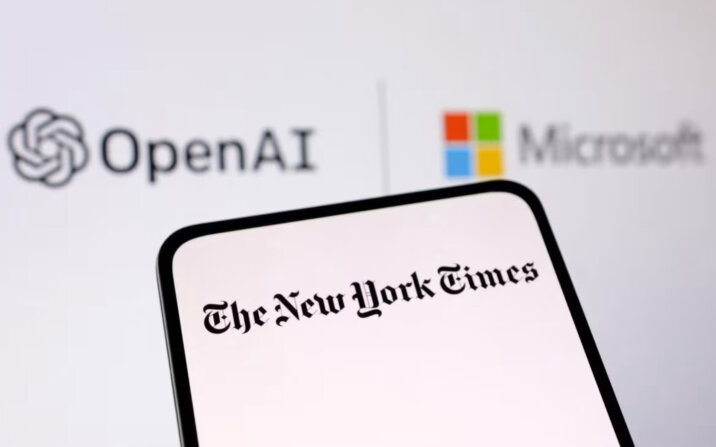
Just today, I stumbled upon a piece of news that’s as intriguing as it is complex. Picture this: The New York Times, a giant in the world of news, is taking on two tech behemoths, OpenAI and Microsoft. Why, you ask? Well, it’s all about copyright infringement, and the plot is thicker than a bowl of oatmeal.
The core of the dispute? The Times alleges that these tech giants have been using its content, without permission, to train their AI models. We’re talking about millions of articles here, folks. The Times argues that this isn’t just a bit of borrowing; it’s full-scale copying, and it’s eating into their bread and butter.
Now, let’s break it down a bit. Imagine you’ve spent years creating something – it could be articles, art, music, whatever – and then someone else comes along, scoops up your work, and uses it to train a fancy AI program. That program then starts doing what you do, but for free. You’d be miffed, right? That’s essentially what’s happening here.
This lawsuit isn’t just a squabble between big names. It’s part of a larger battle. Think of the internet as a vast ocean of content. These AI models are like giant nets, scooping up everything in their path to learn and grow. But what happens to the little fish – the writers, artists, and creators whose work gets caught in the net without them knowing or getting a penny for it?
The Times is waving a big red flag here, saying, “Hold on, you can’t just use our stuff to train your AI without asking or paying.” They’ve got a point. After all, if an AI can mimic the Times’ style or spit out its content, who’s going to pay for a subscription?
The Internet Patrol is completely free, and reader-supported. Your tips via CashApp, Venmo, or Paypal are appreciated! Receipts will come from ISIPP.
It’s a sticky wicket, for sure. OpenAI, for their part, says they respect content creators and are keen to work out a fair deal. Microsoft, on the other hand, is keeping mum on the matter. The Times, meanwhile, isn’t just sitting back. They started talks with OpenAI and Microsoft way back in April, trying to hash out a fair compensation deal, but it seems they’ve hit a brick wall.
Here’s where it gets even more interesting. The Times isn’t alone in this fight. They’ve joined forces with other top newsrooms, like CNN, blocking OpenAI’s web crawlers from nabbing their content. And it’s not just news outlets – comedians, authors, and other creative folks are also crying foul over their work being used without permission.
But let’s not paint AI as the big bad wolf here. The Times acknowledges the potential of AI in journalism. They’re not trying to slam the door on progress; they just want to make sure they’re not left out in the cold. They’re after fair play, which seems reasonable enough.
This lawsuit could be a game-changer, setting the stage for how AI and copyright laws dance together in the future. It’s uncharted territory, and everyone’s trying to find their footing. Will the courts rule in favor of the Times, demanding fair compensation and possibly reshaping how AI learns from our content? Or will they side with the tech giants, giving the green light for AI to continue learning from the vast pool of online material?
Only time will tell, but one thing’s for sure – this legal tussle is a sign of the times, a clash between the old guard of content creation and the new frontier of AI technology. As we watch this drama unfold, it’s worth remembering that at the heart of it all is the timeless question of fairness and respect for the creators who fuel our world with their words, art, and ideas.
The Internet Patrol is completely free, and reader-supported. Your tips via CashApp, Venmo, or Paypal are appreciated! Receipts will come from ISIPP.









